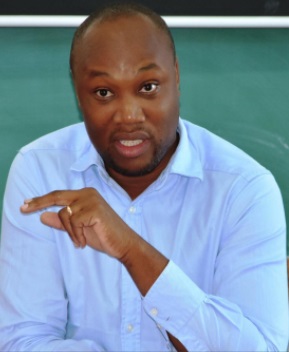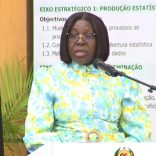Mozambique: Government wants gradual, calibrated capital account liberalisation
IESE researcher says Mozambique-Brazil cooperation has been “a disappointment” in terms of transparency

Cooperation between Mozambique and Brazil has been “a disappointment” for those who hoped for a partnership with more transparency and less businesses, a Mozambican researcher, co-author of a book on the subject, told Lusa on Friday.
“The idea behind this South-South cooperation paradigm is to establish a new type of partnership, to help each other, different from what has been done by the West,” [which has been] more entrepreneurial, said Sérgio Chichava, Institute of Social and Economic Studies (IESE) of Mozambique.
From this point of view, “if we look at it, the presence of Brazil in Mozambique has been a disappointment . It is not, for example, changing the way of being and doing of Mozambican politicians,” he said in an interview with Lusa.
“Creating partnerships or producing dependency?” Is the issue that serves as the title of the publication, to be launched in September, and which brings together 13 articles of individual and joint authorship, involving 21 researchers.
“In the 2000s, under the presidency of Lula da Silva, Brazil started to have a strong presence in Africa and we wanted to understand what relations were being established,” said Sérgio Chichava.
During Lula’s two terms, Mozambique was “the country with the most technical cooperation projects received in Africa and especially in the main sectors in which it operates: agriculture, health and education.”
The articles analyse initiatives supported by the Brazilian State such as the ProSavana agricultural project, the installation of an antiretroviral drug factory to combat AIDS or the ProAlimentos project, among others.
The initial question was to know, looking at the projects, “if this South-South partnership is producing disinterested cooperation”, as it is disseminated in political discourses.
Sérgio Chichava concluded that this is “just rhetoric” and that solidarity is confused with the business of Brazilian companies.
“It’s not a bad thing to be doing business, but we do not want to pass [this cooperation] on to something different,” added Chichava, regretting that the creation of a new paradigm in the relationship between countries has been left along the way.
In the case, relations are worsened by signs of bribery in the award of the Nacala Airport (north of the country) to the Brazilian Odebrecht or for lack of transparency on the loan conditions of the Brazilian National Economic and Social Development Bank (BNEDES) for Mozambique to build the Moamba Major Dam, he said.
“I do not think there is any cooperation that is disinterested,” and the states that receive it, such as Mozambique, “must seize the opportunities that open up today, that there are increasingly alternatives” to international partnerships.
However, in this scenario, Sérgio Chichava argues that the host countries should first change their view of politics.
The question “lies in our way of doing politics, seen as a place of accumulation” of wealth, he pointed out, pointing, for example, to the cases in which national partners with links to power are required to authorise foreign investments, so as to keep part of profits.
The book includes an analysis of the role of the Pentecostal churches in Brazil and considers that they try to assert their beliefs on local churches and are encouraged because of their alignment with power.
The launch is scheduled for September in Maputo, with an edition in English and another edition in Portuguese, edited by the Institute of Social and Economic Studies (IESE) of Mozambique.
Sérgio Chichava, Ph.D. in Political Science, is dedicated to the study of emerging economies and development with a focus on Brazil and Mozambique.













Leave a Reply
Be the First to Comment!
You must be logged in to post a comment.
You must be logged in to post a comment.